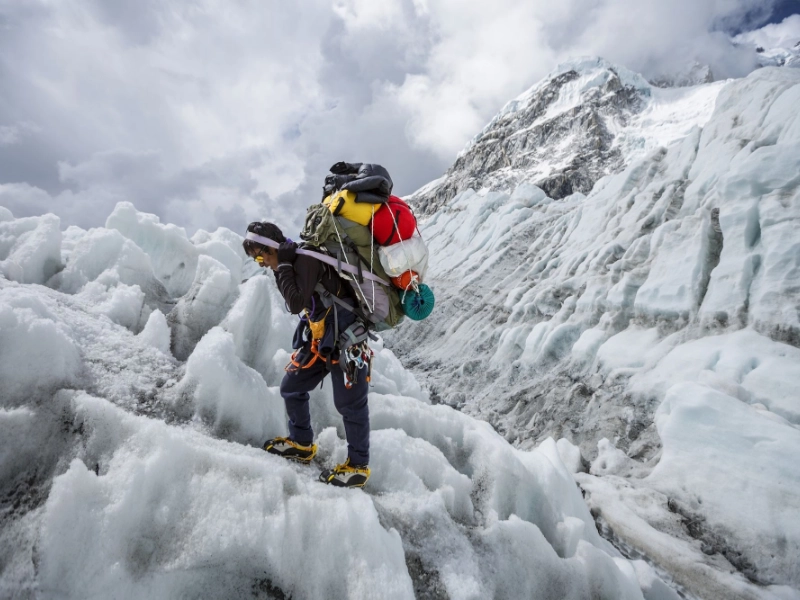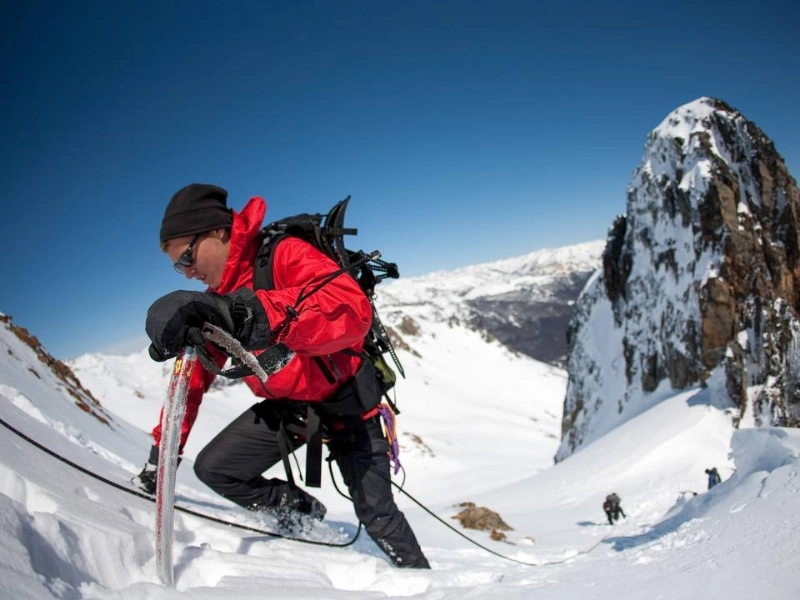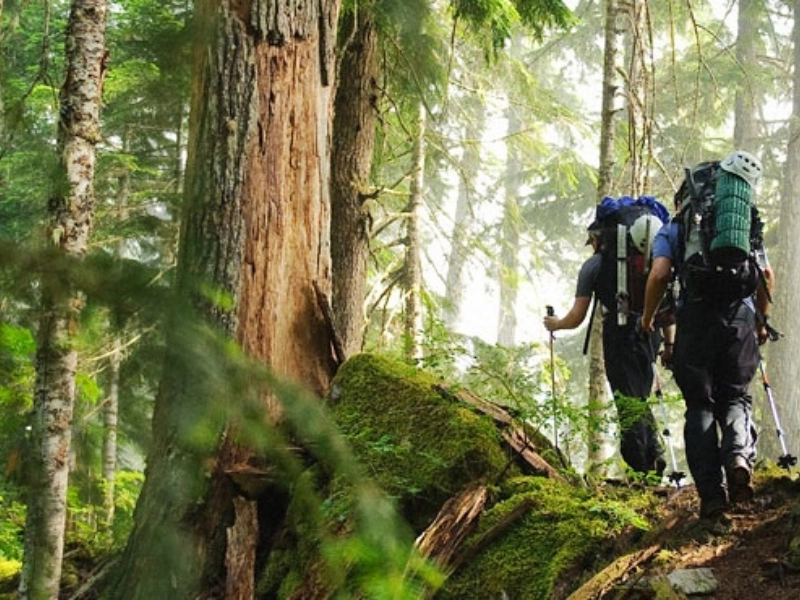In contrast to trekking on well-trod paths or sport climbing near towns, mountaineering demands more physical stamina and technical climbing abilities. Moreover, mountaineering frequently requires a long-term commitment. While organizing a successful excursion, there are numerous considerations to make, such as etiquette, golden rules, and guiding principles. These might assist you in staying safe and preventing mishaps when traveling.
 Not only does mountain climbing challenge one's bravery and ingenuity, but it also takes a lot of physical exertion. For this reason, when attempting to reach the pinnacle of a mountain, it's crucial to always keep in mind that it's farther than it looks.
As more people from Austria, China, England, France, Germany, India, Nepal, and other countries joined the ranks of the world's most accomplished climbers, mountaineering evolved into a genuinely global sport in the twenty-first century. When it came to scaling the hardest mountains in the Himalayan range, the Nepalese were especially skilled. They were therefore in charge of some of the 20th century's most amazing and remarkable climbing accomplishments.
It's crucial to stay hydrated while climbing. Insufficient water consumption can result in dehydration and other health issues. Climbers should also make an effort to abstain from eating a lot of salt and fat. Finally, they need to confirm that the clothing they are wearing for climbing is cozy and warm. Additionally, it's critical to take regular pauses to give your body time to rest and recuperate from exhaustion.
Not only does mountain climbing challenge one's bravery and ingenuity, but it also takes a lot of physical exertion. For this reason, when attempting to reach the pinnacle of a mountain, it's crucial to always keep in mind that it's farther than it looks.
As more people from Austria, China, England, France, Germany, India, Nepal, and other countries joined the ranks of the world's most accomplished climbers, mountaineering evolved into a genuinely global sport in the twenty-first century. When it came to scaling the hardest mountains in the Himalayan range, the Nepalese were especially skilled. They were therefore in charge of some of the 20th century's most amazing and remarkable climbing accomplishments.
It's crucial to stay hydrated while climbing. Insufficient water consumption can result in dehydration and other health issues. Climbers should also make an effort to abstain from eating a lot of salt and fat. Finally, they need to confirm that the clothing they are wearing for climbing is cozy and warm. Additionally, it's critical to take regular pauses to give your body time to rest and recuperate from exhaustion.
 Being a mountaineer involves a lot of risk and is not an easy activity. However, it's an exhilarating sport that can give you a sense of life. To prevent any mishaps in the mountains, it's critical to understand a few climbing laws.
The first climbing rule is that you should always underestimate its height. This implies that you should always account for the possibility that a climb will be harder than you anticipate and never undervalue it. On the mountains, you'll be far safer if you abide by this rule.
The maxim "it's always farther than it looks" is another crucial piece of advice for mountaineers. This implies that you should pack little and bring lots of water in case you go on a lengthy hike. Never forget to hydrate yourself with water during breaks. If you are experiencing lip or tongue paresthesia, you may be dehydrated.
There are two varieties of mountaineering: adventure and alpine. Alpine climbing is typically done in two- or three-person small teams. Larger mountains that are remote from civilization are the domain of expedition mountaineering. These climbs need a lot of equipment and might take weeks or even months to finish.
Being a mountaineer involves a lot of risk and is not an easy activity. However, it's an exhilarating sport that can give you a sense of life. To prevent any mishaps in the mountains, it's critical to understand a few climbing laws.
The first climbing rule is that you should always underestimate its height. This implies that you should always account for the possibility that a climb will be harder than you anticipate and never undervalue it. On the mountains, you'll be far safer if you abide by this rule.
The maxim "it's always farther than it looks" is another crucial piece of advice for mountaineers. This implies that you should pack little and bring lots of water in case you go on a lengthy hike. Never forget to hydrate yourself with water during breaks. If you are experiencing lip or tongue paresthesia, you may be dehydrated.
There are two varieties of mountaineering: adventure and alpine. Alpine climbing is typically done in two- or three-person small teams. Larger mountains that are remote from civilization are the domain of expedition mountaineering. These climbs need a lot of equipment and might take weeks or even months to finish.
 Climbing is an intense physical and mental activity that may make you feel very alive. It can also reveal to you a lot of personal qualities about yourself, such as inner strengths you were unaware of. It can assist you in overcoming your apprehension about taking chances in other spheres of your life.
When mountaineering, it's crucial to proceed cautiously and gently. Always pay attention to your body's signals and honor its limitations. Also, you ought to be informed about the state of the weather and consider forecasts carefully. This is particularly relevant for lengthy climbs because the weather can change suddenly.
Climbing can strengthen your bones and feet physically, and the cerebral obstacles help you become more focused. You grow more resilient and are able to overcome challenges as a result. It also teaches you to create your own action plan and consider the bigger picture. You can use this expertise to improve other aspects of your life, including relationships or your job.
Climbing is an intense physical and mental activity that may make you feel very alive. It can also reveal to you a lot of personal qualities about yourself, such as inner strengths you were unaware of. It can assist you in overcoming your apprehension about taking chances in other spheres of your life.
When mountaineering, it's crucial to proceed cautiously and gently. Always pay attention to your body's signals and honor its limitations. Also, you ought to be informed about the state of the weather and consider forecasts carefully. This is particularly relevant for lengthy climbs because the weather can change suddenly.
Climbing can strengthen your bones and feet physically, and the cerebral obstacles help you become more focused. You grow more resilient and are able to overcome challenges as a result. It also teaches you to create your own action plan and consider the bigger picture. You can use this expertise to improve other aspects of your life, including relationships or your job.
 When mountaineering, a lot of things can go wrong that are beyond your control. Even the most experienced mountain climbers can be victims of avalanches and other unpredictable risks, and the weather might change suddenly.
Getting hurt is another concern, and on the mountain, this may be a major one. Even though it might not seem like a huge concern, a twisted ankle or knee can make the entire trip more risky and unpleasant. For this reason, before you begin climbing, it's crucial to carry a first-aid package and know how to handle accidents.
It's crucial to pay attention to your body's signals and understand your physical limitations. Overexertion can lead to the development of hazardous conditions such as cerebral or pulmonary edema. It's critical to stay hydrated and prevent dehydration while climbing because this can be fatal. Remember to shield your skin from the sun as well.
When mountaineering, a lot of things can go wrong that are beyond your control. Even the most experienced mountain climbers can be victims of avalanches and other unpredictable risks, and the weather might change suddenly.
Getting hurt is another concern, and on the mountain, this may be a major one. Even though it might not seem like a huge concern, a twisted ankle or knee can make the entire trip more risky and unpleasant. For this reason, before you begin climbing, it's crucial to carry a first-aid package and know how to handle accidents.
It's crucial to pay attention to your body's signals and understand your physical limitations. Overexertion can lead to the development of hazardous conditions such as cerebral or pulmonary edema. It's critical to stay hydrated and prevent dehydration while climbing because this can be fatal. Remember to shield your skin from the sun as well.